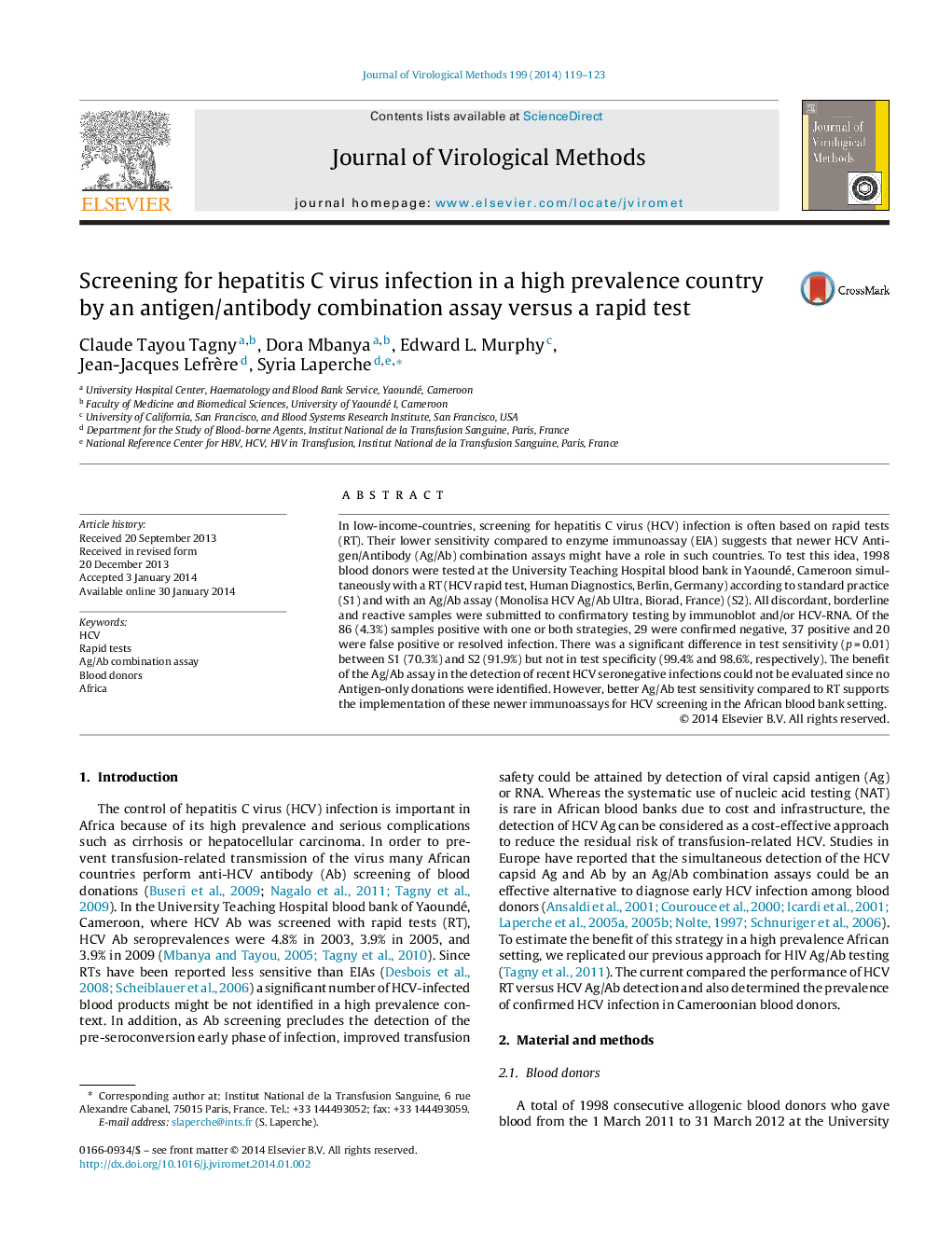| Article ID | Journal | Published Year | Pages | File Type |
|---|---|---|---|---|
| 6133802 | Journal of Virological Methods | 2014 | 5 Pages |
Abstract
In low-income-countries, screening for hepatitis C virus (HCV) infection is often based on rapid tests (RT). Their lower sensitivity compared to enzyme immunoassay (EIA) suggests that newer HCV Antigen/Antibody (Ag/Ab) combination assays might have a role in such countries. To test this idea, 1998 blood donors were tested at the University Teaching Hospital blood bank in Yaoundé, Cameroon simultaneously with a RT (HCV rapid test, Human Diagnostics, Berlin, Germany) according to standard practice (S1) and with an Ag/Ab assay (Monolisa HCV Ag/Ab Ultra, Biorad, France) (S2). All discordant, borderline and reactive samples were submitted to confirmatory testing by immunoblot and/or HCV-RNA. Of the 86 (4.3%) samples positive with one or both strategies, 29 were confirmed negative, 37 positive and 20 were false positive or resolved infection. There was a significant difference in test sensitivity (p = 0.01) between S1 (70.3%) and S2 (91.9%) but not in test specificity (99.4% and 98.6%, respectively). The benefit of the Ag/Ab assay in the detection of recent HCV seronegative infections could not be evaluated since no Antigen-only donations were identified. However, better Ag/Ab test sensitivity compared to RT supports the implementation of these newer immunoassays for HCV screening in the African blood bank setting.
Keywords
Related Topics
Life Sciences
Immunology and Microbiology
Virology
Authors
Claude Tayou Tagny, Dora Mbanya, Edward L. Murphy, Jean-Jacques Lefrère, Syria Laperche,
